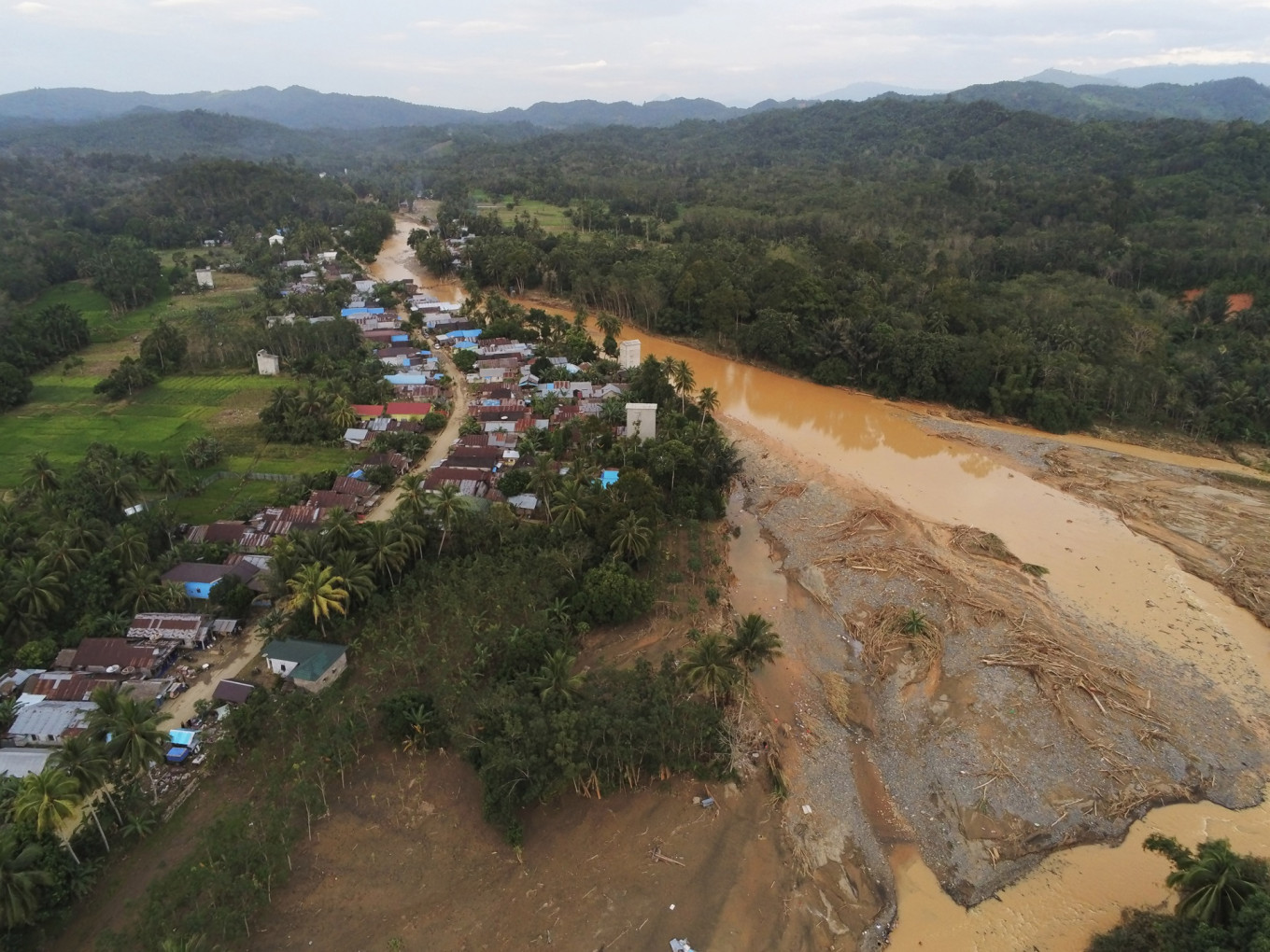Can’t blame it on the rain
According to Greenpeace Indonesia, around 53 percent of Kapuas' 9.3 million hectares of water-catchment area have been converted into oil palm plantations, leaving only 4.2 million ha of forests around the 1,100-kilometer river.
Change Size

N
o matter how hard Indonesia tries to deny or attenuate the impact of deforestation and other environmental damages, nature speaks for itself. And it gets louder during the rainy season.
Following the changing patterns of the climate, many provinces in the country have experienced record-high rainfall that usually triggered floods and landslides in the past few years. At the end of 2019, just before the pandemic hit, Jakarta endured one of the worst floods caused by heavy rainfall. At that time, President Joko “Jokowi” Widodo’s suggestion to relocate the capital to Kalimantan seemed like a good idea.
A year later, nobody felt like rushing to one of the country’s largest islands, as many provinces in Kalimantan were also flooded after days of rainstorms. The affected areas included the site prepared for the new capital city, which stretches across 256,000 hectares between North Penajam Paser and Kutai Kartanegara regencies in East Kalimantan.
This year, Kalimantan has not gotten any better. Three out of five provinces in Kalimantan have been flooded, and as much as the government wants to blame it on the rain, it will not hide the fact that the fast depleting forest cover on the island has contributed to the natural disasters.
According to Greenpeace Indonesia, around 53 percent of Kapuas' 9.3 million hectares of water-catchment area have been converted to oil palm plantations, leaving only 4.2 million ha of forests around the 1,100-kilometer river.
Data from Global Forest Watch revealed that Kalimantan had lost around 4.1 million ha of primary forests – defined as forests that have not been completely cleared and regrown – between 2002 and 2020. Last year, the island’s primary forest area shrank by 121,000 ha.
Environment and Forestry Minister Siti Nurbaya said “massive development” must not stop in order to end deforestation. While the statement seems anthropocentric and leaning toward people’s welfare, at this time of the year, it has become more apparent how allowing deforestation, especially without any control, also carries fatal consequences.
Dozens of people have died, while over 100,000 have been displaced due to the floods. And looking into the weather patterns, these massive floods and rainstorms may become a regular occurrence every year.
If this is the road that the Jokowi administration has chosen to take, to continue to allow deforestation in the name of development, then it is also appropriate to think and spend more on mitigation and adaptation to prevent the catastrophic impacts of natural disasters.
Given the deteriorating climate and poor development projects in the country, no place is completely dry and safe. If the country’s sitting administration may escape coastal abrasion that may sink Jakarta, it may still be caught in floods in Kalimantan.
No place is really safe as long as the government keeps hurting nature.









